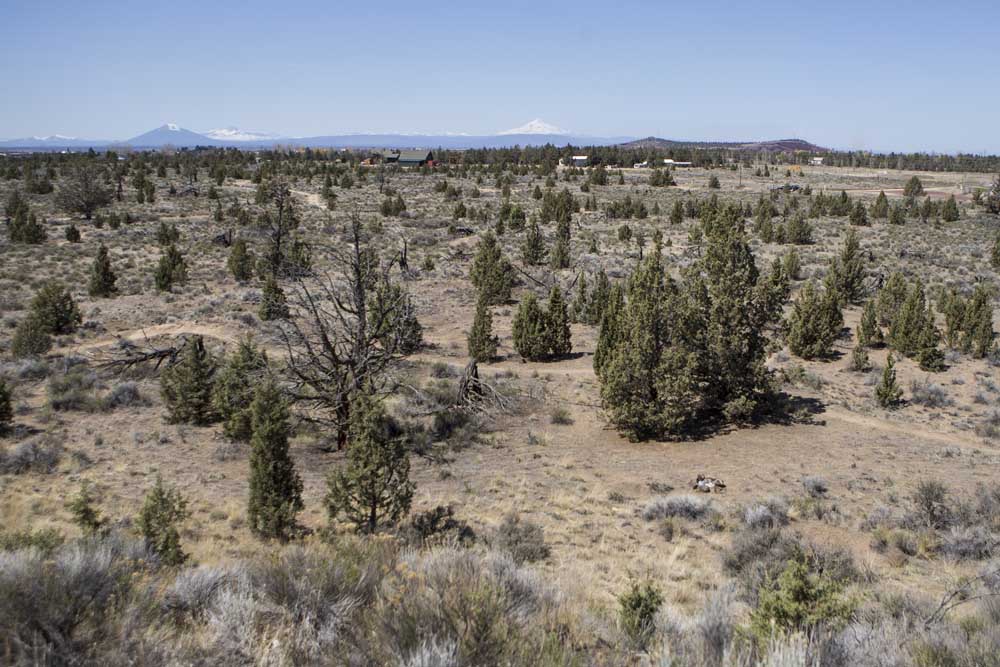Redmond slowly moving forward with massive Skyline Village housing project
Published 7:00 am Friday, April 23, 2021

- A plot of land south of Maple Avenue near the High Desert Sports Complex is the proposed location for the Skyline Village affordable housing project in Redmond.
It may take a while before new homes and apartments are standing, but the city of Redmond is still pushing forward with its 485-unit Skyline Village housing project.
The Redmond City Council approved several major benchmarks at its meeting last week to get construction started in the city’s northeast corner. And the potential for hundreds of new housing units — half of them affordable — in a region that badly needs them is exciting to local advocates.
“You can’t keep a house on the market for more than a week,” said state Rep. Jack Zika, R-Redmond. “We desperately need more housing in Central Oregon.”
Skyline Village was made possible with the passage of Oregon House Bill 2336, signed by Gov. Kate Brown in 2019. The bill, sponsored by Zika, is allowing Redmond to build Skyline Village without having to go through the state’s strictest land-use rules.
The current plan for the development is a 40-acre neighborhood with 485 housing units of varying types, according to city documents. At least half of those units will be reserved for those who make 80% of the area median income or less — meaning about $52,070 or less, according to U.S. Census data.
Skyline Village will be located just northeast of Redmond’s current city limits, between NE 13th Street, NE 17th Street, NE Kingwood Avenue and NE Negus Way. The development will feature a variety of housing types, from town homes to three-story apartment buildings to cottage housing — which are single-family houses spaced closely together.
In late 2019, Deschutes County agreed to donate the 40 acres needed for Skyline Village to the city of Redmond.
At the April 13 Redmond City Council meeting, councilors unanimously approved a bundle of four applications meant to move the development of Skyline Village forward.
The City Council first voted to rezone the 40 acres for mixed-use and residential use. Previously, it was zoned for exclusive farm use.
Then, the council agreed to add the 40 acres to Redmond’s urban growth boundary. This makes it easier for the city to annex the land, which should happen in 2021, said John Roberts, deputy city manager.The council also partitioned the 40 acres, to separate it from the larger surrounding parcel. This was a requirement of the county’s land donation, according to city documents.
Finally, the City Council approved a master development plan for Skyline Village. This dictates what parts of the 40 acres will be used for specific purposes, Roberts said.
The council’s next two steps are to wait until Deschutes County amends its comprehensive land use plan to accommodate Skyline Village, and to hire a master developer, Roberts said. The county is expected to make that move soon, and the city hopes to solicit a developer starting early this summer, he said.
But even if everything goes perfectly smoothly, construction won’t start until early summer 2022, Roberts said. And even that might be a stretch.
“I’d say early next summer … but that’s an ambitious timeline,” he said.
Katherine Austin, a Bend-based architect who sits on Bend’s affordable housing committee, said the slow timeline for Skyline Village isn’t surprising. That’s mostly due to the difficulty in finding the necessary funding, so the housing can actually be affordable.
“What people have to realize, it’s going to take a long time for this to actually develop,” Austin said. “It’s a huge project, and there’s only so much subsidy available for affordable housing in one year.”
Austin also had concerns about Skyline Village being located far away from central Redmond. Although she acknowledged there likely wasn’t a better place to put it, putting affordable housing deep in the sprawl isn’t the best solution, she said.
“When you put affordable housing out on the periphery, it requires people to own cars to have people get to jobs, get food,” Austin said. “The more somebody needs a car, the less affordable the housing is.”
Still, Austin acknowledged that Central Oregon badly needs more affordable housing.
“I think it’s a very helpful thing,” she said of Skyline Village. “The preference would be more in-town, but this is the next best thing.”





